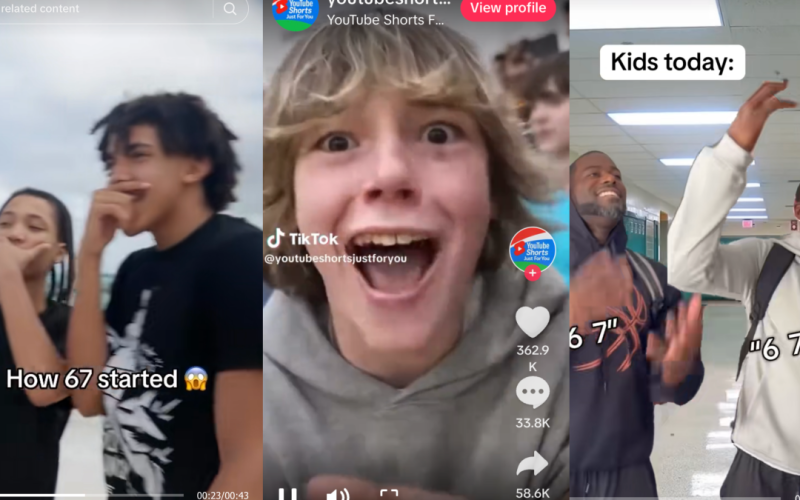
Remember when words used to mean something? Well, we had a nice run.
In what might be the final death knell for language as a concept, Dictionary.com announced Wednesday that “67” is its Word of the Year for 2025. Yes, that’s right — 67. Or six-seven. Or 6–7. Or “six seeeeeeeven.” However you spell it, it’s apparently a word now.
If you’re mostly offline, you may have been spared the whole six-seven phenomenon. I broke down its origins and meaning for Mashable, but to summarize: It means absolutely nothing. It’s an inside joke among teens that spread on TikTok — a sing-song nonsense phrase often paired with a hand motion. It’s pure brainrot, and it’s made the leap into the real world.
“It’s part inside joke, part social signal and part performance,” said Steve Johnson, PhD, director of lexicography for the Dictionary Media Group at IXL Learning, in a statement. “When people say it, they’re not just repeating a meme; they’re shouting a feeling. It’s one of the first Words of the Year that works as an interjection — a burst of energy that spreads and connects people long before anyone agrees on what it actually means.”
OK, but…is six-seven even a word? It feels more like a phrase. Or maybe a number. Either way, it’s nonsense.
Now, I don’t have a problem with the whole brainrot meme turned real-life thing. The six-seven trend is fine by me. Kids have been yelling nonsense since forever. And sure, six-seven is undeniably viral. But that doesn’t mean it has to be Word of the Year. Plenty of things actually defined 2025. If you’re a grown adult seriously bringing up six-seven in that conversation, maybe reevaluate your priorities.
It’s not even linguistically interesting! It’s just a number that signifies nothing. I could understand choosing meaningful slang — something with cultural or emotional weight. But six-seven? That’s empty calories. (And yes, Oxford already gave “brain rot” its moment back in 2024.)
Of course, “Word of the Year” is a made-up award for publicity. And here I am, talking about it. But still. We can do better. Here’s to 2026 — may it bring us words that actually mean something.
